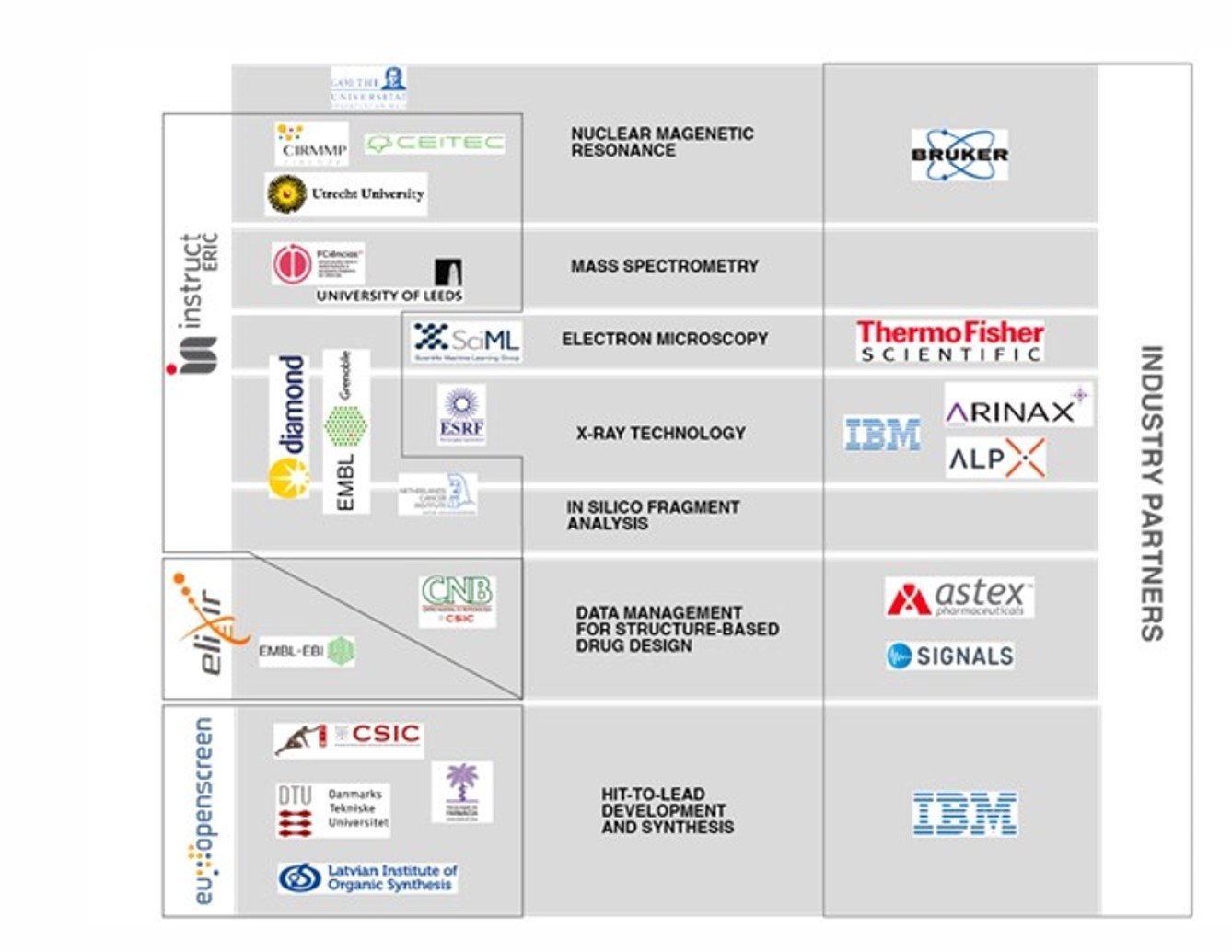The aim of Fragment-Screen, a new Horizon Europe project, is to develop innovative instrumentation, workflows, and experimental and computational methodologies to accelerate the development of new drugs using the approach of fragment-based drug discovery (FBDD). This will be relevant for the Oncode Institute and Oncode-PACT communities.
In recent years, fragment-based drug discovery gained momentum, both in the pharmaceutical sector and in academic settings to help develop new chemical matter interfering with protein targets. FBDD already has a proven track record of drug generation, with FDA approval given in several cases. Up to now, biophysical methods such as X-ray crystallography and Nuclear Magnetic Resonance (NMR) are used for the structural screening of compound libraries that typically contain several hundreds of compounds.
Coordinated by Instruct-ERIC, the Fragment-Screen project will now take the next step. It will address current bottlenecks in sensitivity (NMR), automation of data analysis (X-ray), as well as the applicability of cryo-Electron Microscopy for high-throughput FBDD. The project also aims to make data analysis coherent over different methodological approaches, and mass spectrometry will be implemented to provide highly valuable cross-validation technology.
Harald Schwalbe, Instruct-ERIC Director, said, “I consider the Fragment-Screen project to be transformative for fragment-based drug discovery. Within this project, we will successfully bring together not only Structural Biologists and Medicinal Chemists, but also major European technology organisations and companies, some of which operate in the rapidly growing field of Artificial Intelligence.”
Oncode Investigator Anastassis Perrakis, group leader at the Netherlands Cancer Institute and part of Oncode-PACT, adds: “The developments in Fragment-Screen will help both my research team and hopefully other Oncode researchers, as well as Oncode-PACT demonstrator projects, in the development of modulators of the activity of various proteins related to cancer. With these technologies we can go beyond typical inhibitors, and explore innovative ways to allosterically modulate enzymatic function, or disrupt protein interactions, or offer “anchors” for PROTACs, and assist other innovative approaches for modulating protein function in cancer cells.”
The team of Anastassis Perrakis participates in Fragment-Screen focusing on automation of X-ray crystallography data analysis, based on the PDB-REDO platform developed by Robbie Joosten, research associate in the NKI. In this project, PhD student Ida de Vries will focus on creating innovative automated platforms for evaluating X-ray data to validate ligand binding in thousands of structures, without human intervention. These results will also generate data valuable for Oncode-PACT activities related to the AI platform and Small Molecule Workstream.
Together with medicinal chemistry, biomolecular structural insight will provide input for exploitation of artificial intelligence methodologies, ultimately to steer hit-to-lead optimisation programs in drug development. Along Instruct-ERIC that coordinates the project, and the NKI team, participants include the European Molecular Biology Laboratory (EMBL), ELIXIR, the EU-OPENSCREEN ERIC, and others, including seven innovative technology companies willing to help co-develop instrumentation and procedures to remove key bottlenecks that appear in the drug discovery process.
